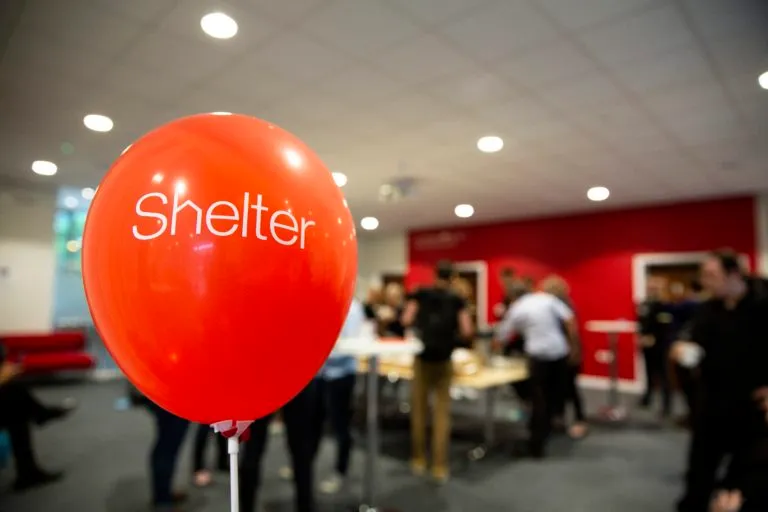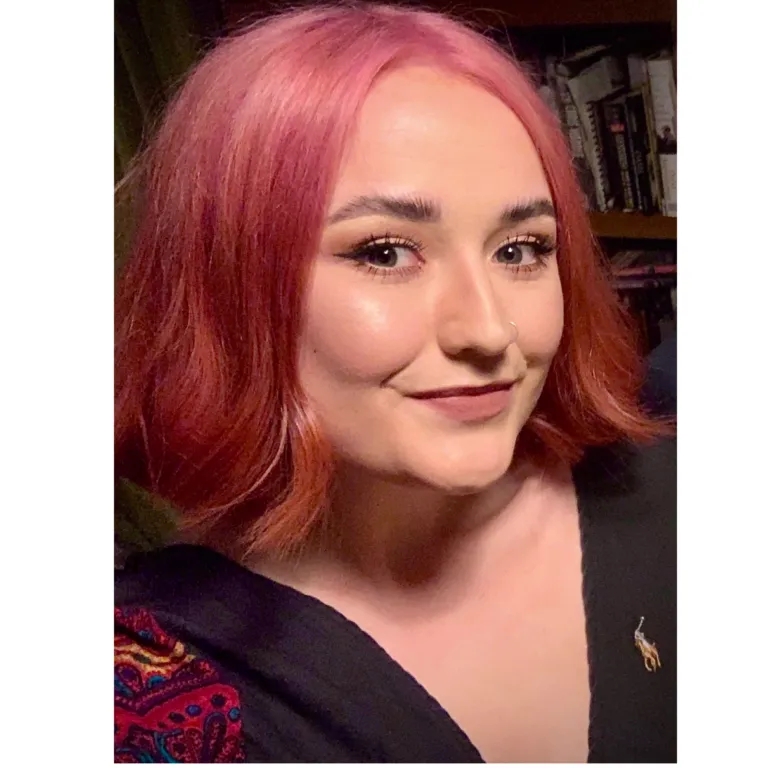‘My perceived weakness now felt like my biggest strength’
Published: by Guest blog

Mia Bowater, Involvement Officer at Shelter, on how her own experience has benefited her in her role, and the people she works with.
I’m Mia, Involvement Officer for Sheffield and Newcastle. To mark Co-production Week, I wanted to share my experience of working at Shelter, as someone with personal insight into bad housing and homelessness.

‘On bad days, we slept in my mum’s car’
For context, my parents’ relationship broke down when I was seven years old (I’m now 23), meaning my mum and I were homeless for two years. On good days, we slept on the floors and sofas offered to us by the parents of my friends in the school playground. On bad days, we slept in my mum’s car. Eventually, we were offered temporary accommodation in Sheffield, which we inevitably left and were again, legally homeless.
In the 10 years that followed, mum and I rented privately. We moved 16 times, rarely staying in properties for longer than six months (sometimes less), with a few periods of sofa surfing in-between places. We struggled to find our balance walking the fine line between affordable and safe – a compromise many people in the private rented sector must make. I was very aware from a young age that the conditions we were forced to live in were unsafe. Often illegal. Like the time our landlord had the boiler condemned because they found asbestos in the airing cupboard, but said they saw ‘no financial benefit’ in replacing it, threatening us with eviction when we challenged them. Finally, in 2015, my mum was offered a council property, where we’ve been settled, safe and happy for almost five years now.
The effect of homelessness and living in poverty when I was a child was profound. It presented itself as embarrassment, when the school secretary called me into her office to ask why my mum hadn’t paid for my school dinners yet, stressing to me that this was ‘becoming a nuisance’ for her. Shame, when my friend’s parents explicitly said that my friends were not allowed to go to ‘that area’ I lived in. Shame when I had to explain that I didn’t have a bedroom like they did. Guilt when I told my mum about these conversations and she cried.
Guilt, shame and embarrassment are unwelcome feelings that I have struggled to manage for a long time, and they have impacted all aspects of my life. I left college without finishing my A levels, despite being right on track for university, because I didn’t feel like I deserved to be there.
An opportunity with Shelter
Shelter has always been a charity close to my heart. When I saw an opportunity to join the involvement team, I jumped at it. I don’t think I would have applied for the job if the advert didn’t specify that people with lived experience were encouraged to apply. Encouraged!
I think it’s important to mention here that this was the first time that I’d ever felt empowered by my lived experience of homelessness in a professional setting. Or any setting, for that matter. This was the first time that I had been told that that part of my identity was desirable. This was the first time my experience had ever felt positive; something that put me at an advantage, after years of being told to ‘tone it down’ or not mention it at all in workplaces. My perceived weakness now felt like my biggest strength.
Starting a new job in a new organisation is daunting for anyone. Carrying shame and guilt, for circumstances that were beyond my control, has been a heavy load. Being able to use that experience to support clients to get involved with Shelter has been very healing for me. Knowing the positive and calming effect that sharing parts of your life story can have, I am able to better identify opportunities for others to share their story and their insight, shape and improve Shelter’s service delivery, campaign for change and raise awareness of issues people who have experience of homelessness and bad housing can face – even after they are in secure housing. Reassuring, encouraging and supporting them with any doubts, as someone who has been in a similar position, not just as a professional.
My hope for the future
Sharing my story with staff and volunteers when I first started has allowed me to connect with others, who also have lived experience of homelessness. Through those conversations, me and a few colleagues discovered we had a mutual interest in the welfare and development of our other colleagues, present and future, who have also been through similar circumstances. From this, we have made plans for an affinity group for people with lived experience who work or volunteer for Shelter, to support, empower and encourage each other, as well as raising awareness of the value that involving people with personal insight has.
Shelter continues to be very supportive of diversity and inclusion, and has been encouraging when discussing plans for our affinity group. We understand that the intersections of people’s identities must be considered, as they can greatly affect how a person experiences homelessness and the subsequent support and housing they receive, so our aim is to create a clear link with other affinity groups – such as the LGBTQ+ network – too.
My hope for the future is that by sharing my story, other people who have faced similar adversities will understand the worth that their experience holds. Through raising awareness, I hope that they will be able to overcome the same mental barriers that I once felt were impenetrable, that Shelter and other third sector organisations will continue to focus on the value of the insight we have, and use this to further develop our approach to co-production.
Find out more about Shelter’s Get Real Opportunities of Work (GROW) scheme.
Want to get involved in #CoProWeek? Find out more and access events, activities and online resources, or listen to Shelter’s brand new podcast series.